
Training and Market Linkages in the Food Services Sector Targeting Urban Mandate Refugees and Host Community Members in collaboration with the International Labour Organization (ILO).
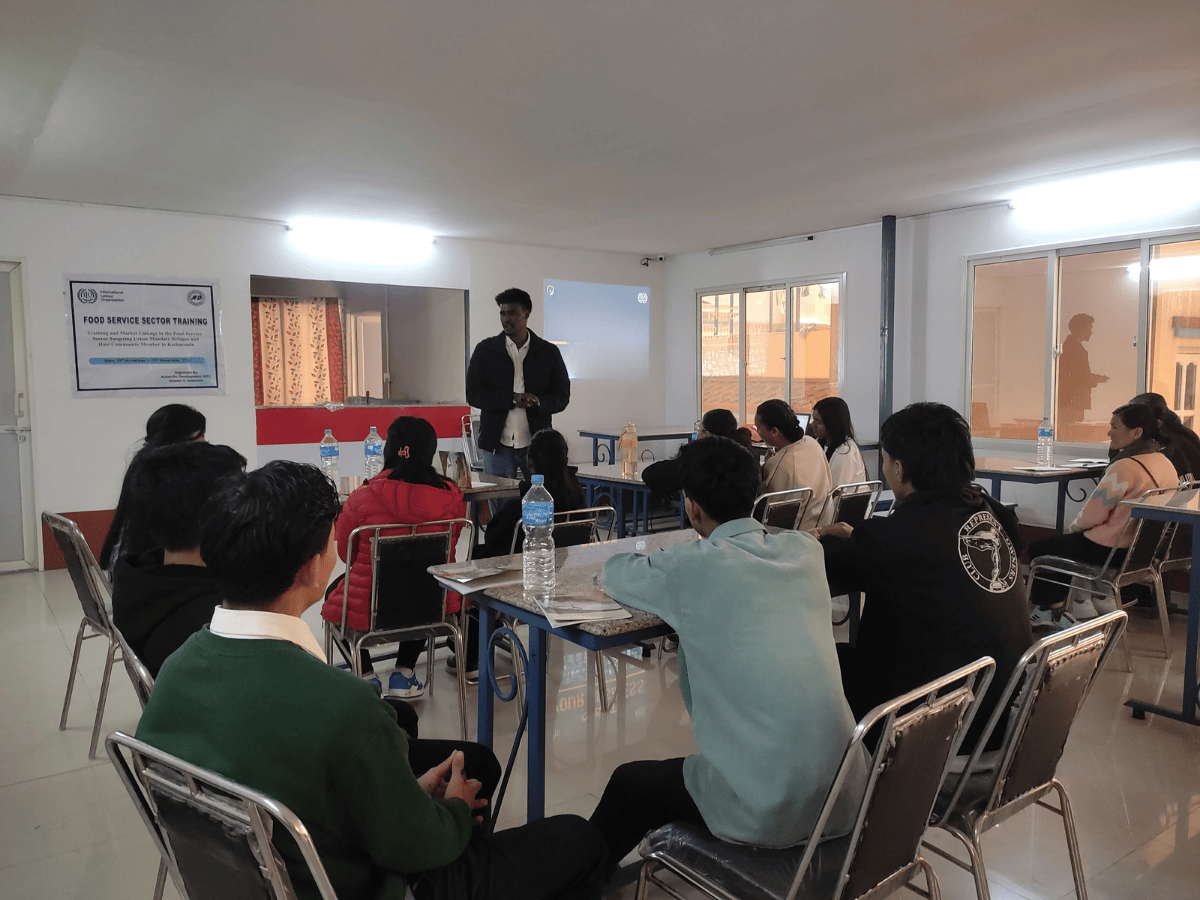
The Training Plan for the Food Services Sector targeting urban mandate refugees and host community members in Kathmandu, Nepal, organised by The Action for Development Pvt.Ltd. is a comprehensive initiative designed to enhance employability and entrepreneurial capabilities through skill development in the food service industry. Organized from 26-30 November 2024, the program aligns with the goals of the International Labour Organization (ILO), which emphasizes vocational training and skill development as key drivers of economic empowerment, particularly for vulnerable populations such as refugees and host communities.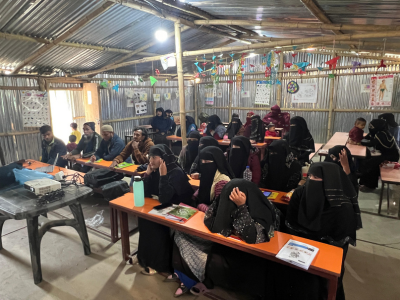
The primary objective of the training is to equip at least 50 participants with essential skills in food preparation, safety and hygiene, waste management, and packaging as indicated by International Labour Organization (ILO). These skills are critical for improving employability in the food service sector, which is a growing industry in Nepal. The training also aims to foster entrepreneurial capabilities, enabling participants to start their own food-related businesses, thereby contributing to local economic development.
The program is structured and approved by International Labour Organization (ILO) for over three days in 2 different locations, with a focus on both theoretical knowledge and practical skills. On Day 1, participants are introduced to the basic culinary techniques, including food preparation, cooking methods, and knife skills. The day also covers menu planning and the fundamentals of business, providing a holistic understanding of the food service industry. These sessions are facilitated by experts such as Leela Rai and Bikesh Malapati, who bring extensive experience in the hospitality sector.
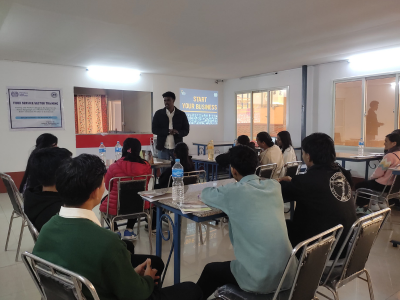
Day 2 shifts the focus to food safety and hygiene, a critical aspect of the food service industry. Participants learn about the key principles of food safety, including personal hygiene, food storage, and handling practices. The training also introduces HACCP principles and the importance of food safety certifications, which are essential for maintaining high standards in the industry. These sessions are particularly relevant in the context of Nepal, where food safety regulations are increasingly being enforced to ensure public health.
The final day, Day 3, emphasizes customer service skills, which are vital for success in the hospitality industry. Participants learn about the importance of customer satisfaction, conflict resolution, and handling difficult situations. The role of feedback in enhancing the guest experience is also discussed, highlighting the importance of continuous improvement in food service training and development.
The training program is a collaborative effort involving the International Labour Organization (ILO), and Action for DeveAction for Development Pvt.Ltd.lopment Pvt. Ltd., an organization dedicated to empowering marginalized communities through skill development and vocational training. By targeting both refugees and host community members, the program promotes social cohesion and economic integration, aligning with the broader goals of the International Labour Organization in fostering inclusive growth.
In conclusion, this training plan represents a significant step towards skill development in Nepal’s food service sector. By equipping participants with the necessary skills in food hygiene, culinary techniques, and customer service, the program not only enhances employability but also fosters entrepreneurship, contributing to the sustainable development of the local economy. The involvement of experienced facilitators and organizations like Action for Development ensures that the training is both practical and impactful, addressing the needs of vulnerable populations while promoting economic resilience.
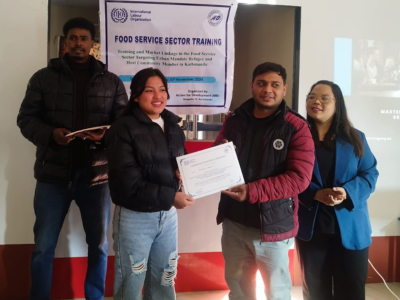

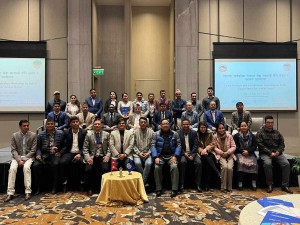
1716882354.jpg)
